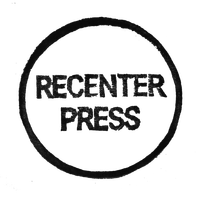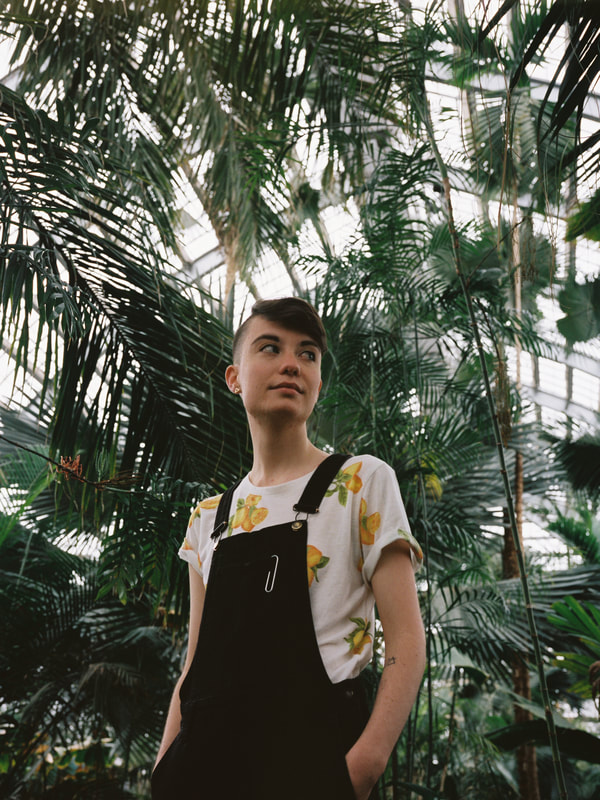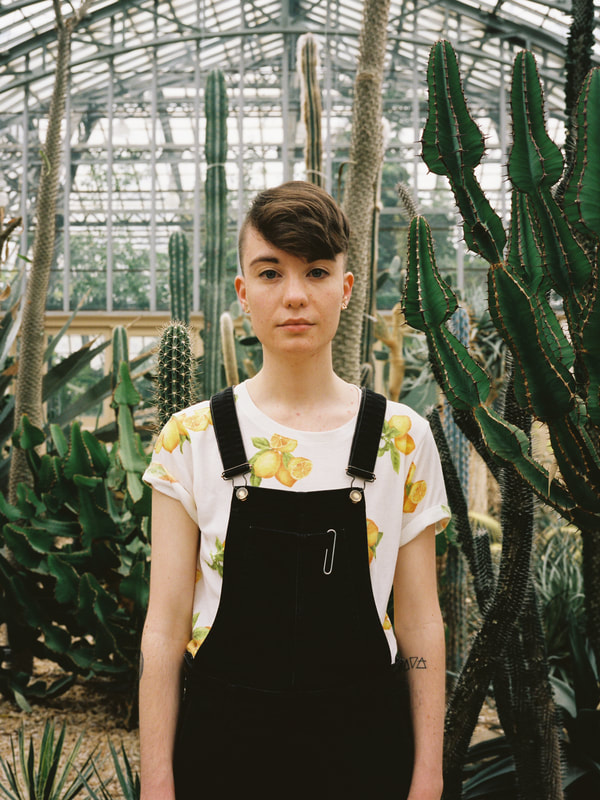|
Photos and interview by Terra Oliveira. Doe Parker is a trans poet/essayist from the Bay Area currently based out of Chicago. He has a B.A. in poetry from Columbia College Chicago, and has work published or forthcoming in Habitat Lit Magazine, Pine Hills Review, Sink Hollow Literary Journal, Hooligan Magazine, No Assholes Lit Magazine, Columbia Poetry Review, Callosum Magazine, and EOAGH. His debut collection, The Good House & The Bad House, was published by Recenter Press in April 2018. He has a pet snake, loves bookbinding, and plans to spend the next year working on a new manuscript, Vestibule. When did you first begin writing, and how has your creative process changed over time? Ever since I learned how to write I’ve kept diary-like journals and poetry notebooks. A big change that’s happened over the past few years is seeing the majority of what I write as thinking toward other writing. I don’t try to edit everything I write down into something that feels polished or done--but all of the thinking and processing is necessary to the writing I choose to keep. Realizing that is freeing because I’m not trying to write perfect first drafts, (which is impossible), or put too much weight onto myself which makes it harder to sit down and write. How did The Good House & The Bad House first start coming to fruition? It started as a prompt for a workshop--we got assigned to do the writing equivalent of a still life and I did the kitchen of the house, brought it to workshop, and got encouraged to keep writing more of the rooms of the space. Most of the descriptions of the house aren’t in the final draft and have been replaced by the illustrations--but they were important for me in upwelling emotions / accessing memories from far outside the space/time of the text. How is the dualism of a title such as The Good House & The Bad House meaningful to you? There’s one house where everything is happening but there’s so much division between my parents and I and the past and the present selves in it that I wanted to show off that binary in the title. The kind of Christianity that I was raised with was focused on a very strict “good or bad” / “heaven or hell” etc. thinking. I grew up being told continually that I was inherently wrong/bad--especially during coming out as gay and trans. Having the house labeled as good and bad feels powerful to me because it's allowing me to take the good from the space and redefine my ethics to be able to point to what was bad. How the book ends, with a redefined forgiveness for my own benefit, is an important departure from a forgiveness that is operating out of a sense of guilt and debt. What does “home” represent to you? How has your relationship to home and home-ship changed over time, and throughout the writing of the book? I used to find my sense of home in my relationships with other people--which was appealing then because an attachment was something portable I could carry around with me. Something negative that I unintentionally learned because of this was to treat close relationships as an escape from emotions or to view people as initial processing spaces instead of companions. Now that’s super heavily shifted and I have an apartment space that feels like home. It's been such a great experience to be able to feel a sense of pride/ownership/responsibility around where I live and to decorate it and make it a functional and happy space for myself. I saw that you are working on a new manuscript, Vestibule. Could you tell us more about that? The name might end up changing, again, but I’ve been working mainly in nonfiction essay land and focusing on trans stuff interacting with other parts of life. Do you have rituals / habits around your writing? Yes! I pretty much always have a notebook with me and a note going on my phone that ends up being a mix of diagrams, sketches, short summaries of essays I want to write down, topics I want to research, quotes I like, or fragments of poems. I like typing things into one place on my computer, printing that, and using the margins to edit/expand/edit/expand. Bookbinding is also an important part of my process because I really enjoy manipulating the size / shape my writing ends up in based around the size / shape of a notebook I make for a particular chunk of time. Whose work is the most inspiring to you right now? I’ve just wrapped up listening to Morgan Page’s OFTV podcast which is all about trans history. Lately I’ve been reading Jamison Green, Hanif Abdurraqib, Amina Cain, Danez Smith, Trace Peterson, Chris Kraus, Vivek Shraya, Marlene Zuk, Sheila Heti and Kate Bornstein. How does community influence your work? I have a circle of close writer friends that are an amazing support system both as like a sounding board for ideas and as editors for my writing when its in super early stages. One of my closest writer-pals is Mica Woods--she has some really awesome poems in a bunch of online journals right now. Trans folks are my most important community and lately I’ve been doing a lot of writing around how queer communities interact with trans folks in negative and positive ways and having other people with similar experiences to talk to has been super grounding in that. I try to go to a lot of different readings to get an idea of what I like and don’t like and to think about why so I can bring that into my own writing. I also try to do readings myself to float new work and see how its received / put myself with an audience so I can visualize a potential audience I’m writing toward. I recently started working in a bookstore and it's been great to see what new books are popular, to have discussions with customers around what they like and why, and see a lot of community events. I started a trans and gay authors book club at the store and I’m hoping to expand that into a website that collects different medias made by trans folks because that stuff is so hard to find. I’m constantly disappointed with how few trans people are published with bigger/mainstream presses--and that the trans folks that are published are often not financially realistic for bookstores to buy because wholesalers don’t link up with many smaller presses. So the larger writing community not being too focused on how to uplift trans folks influences how I think about audience / my job as a trans writer being shifted to including anthologizing work because of that / etc.
3 Comments
Luna
9/9/2018 01:55:02 pm
good work
Reply
5/26/2019 10:06:16 am
I admire Doe Parker and I also love his book, The Good House and The Bad House. Also, for me, he is so cool for having a pet snake whereas I cannot even hold or touch one. I am glad to know something about him and about his writing. It is also nice to know the background of his book and where he got the inspiration to write it. I am also very excited about his new manuscript, Vestibule. By the way, thank you for this great interview. I had fun reading!
Reply
Leave a Reply. |



